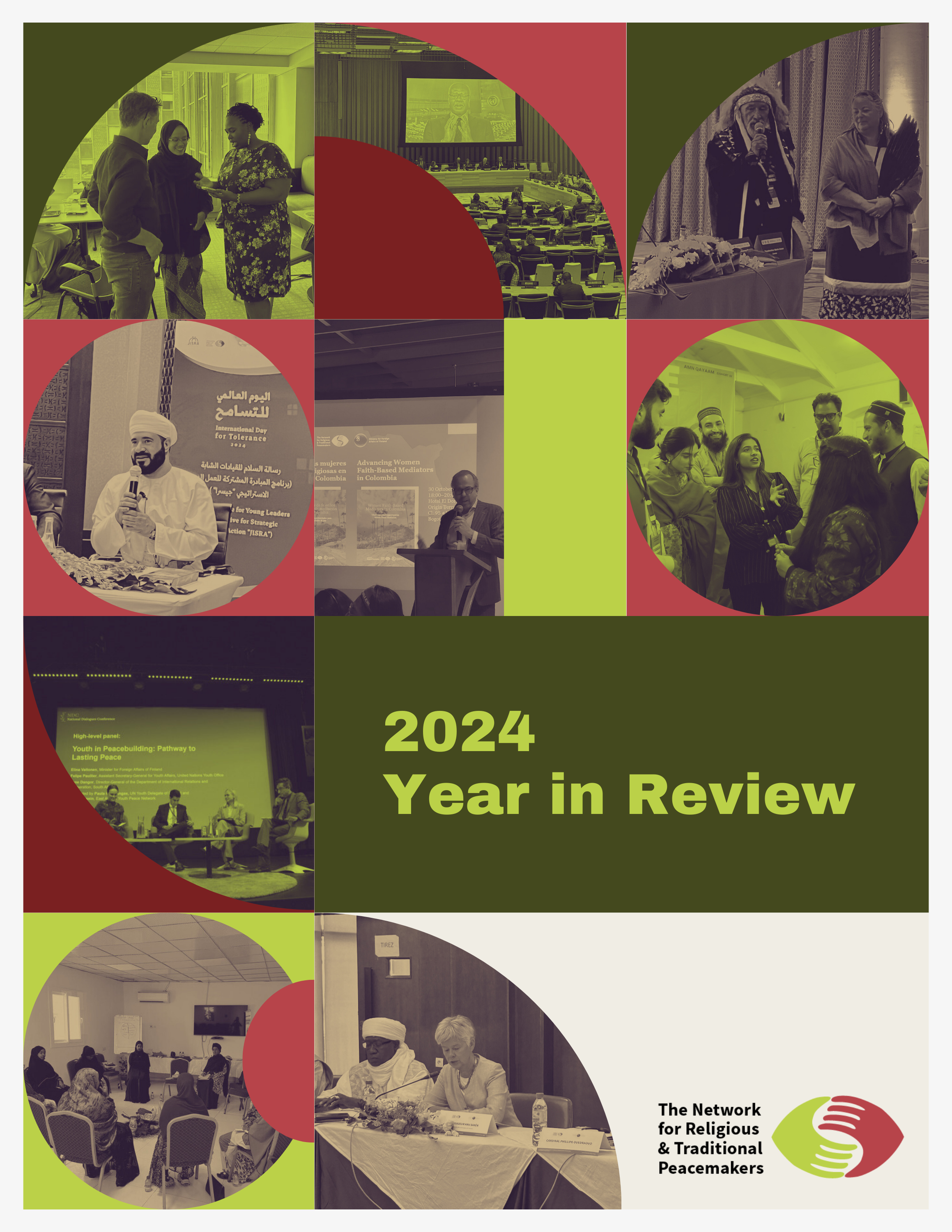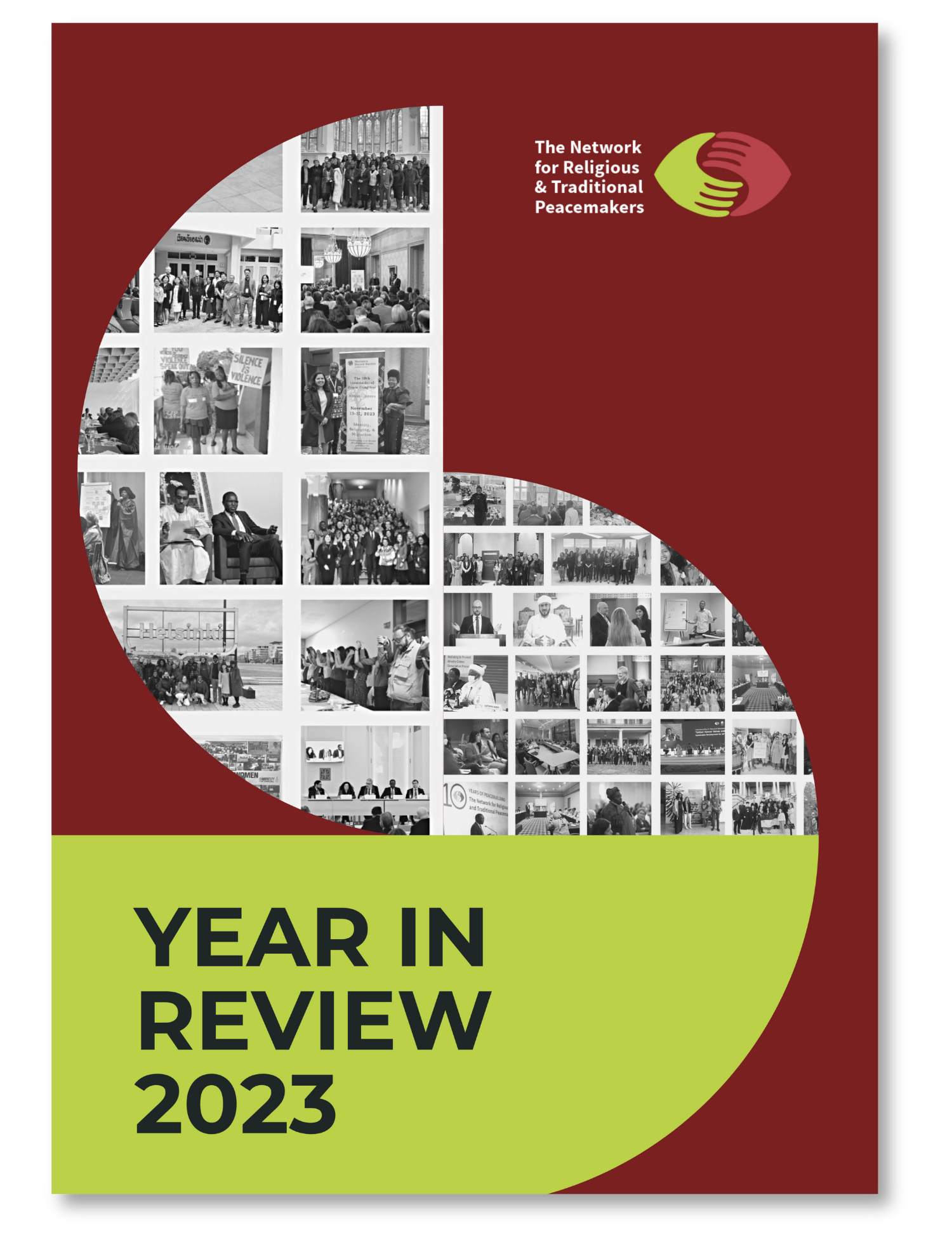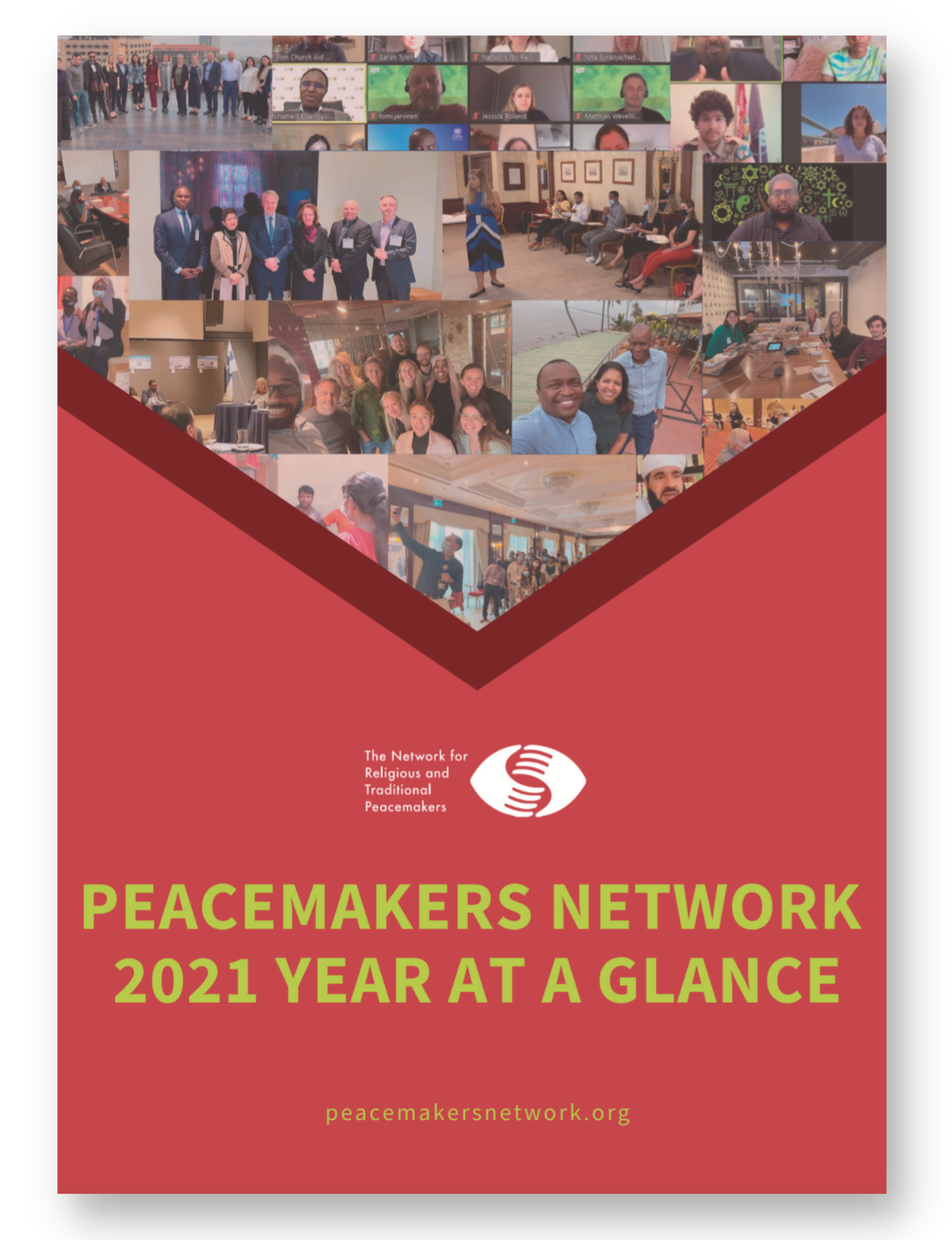About Us
The Network for Religious and Traditional Peacemakers builds bridges between grassroots peacemakers and global players in order to strengthen the work done for sustainable peace. The Peacemakers Network strengthens peacemaking by collaboratively supporting the positive role of religious and traditional actors in peace and peacebuilding processes.
Our Vision
A world where religious and traditional actors play a positive role in preventing violence and contributing to sustainable peace.
Our Mission
To enhance the effectiveness of efforts towards peaceful and inclusive societies by increasing the active collaboration between religious and traditional actors and other key stakeholders in conflict transformation.
Our Objectives
1. Strengthen coordination and cooperation among its members and between them, and oters working for comparable goals.
2. Advocate for the engagement of religious and traditional peacemakers and their values in peacemaking and broader peacebuilding processes.
3. Advocate for inclusivity, gender equality, and human rights among religious and traditional actors engaged in peacemaking.
Sustaining Peace
Since becoming operational in 2013, the Peacemakers Network has supported individual traditional and faith-oriented insider mediators, intra- and inter-faith dialogues, and the advancement of reconciliation efforts. Peacemakers Network activities are conducted as a collaborative effort between Network Members, Supporters, and the Secretariat, and are based on requests from local or international peacemakers or partners. These collaborative actions and processes enhance the ownership of actors involved, measurably reduce the duplication of efforts, and evolve strategic collaborative actions that are sustainable in the long run.
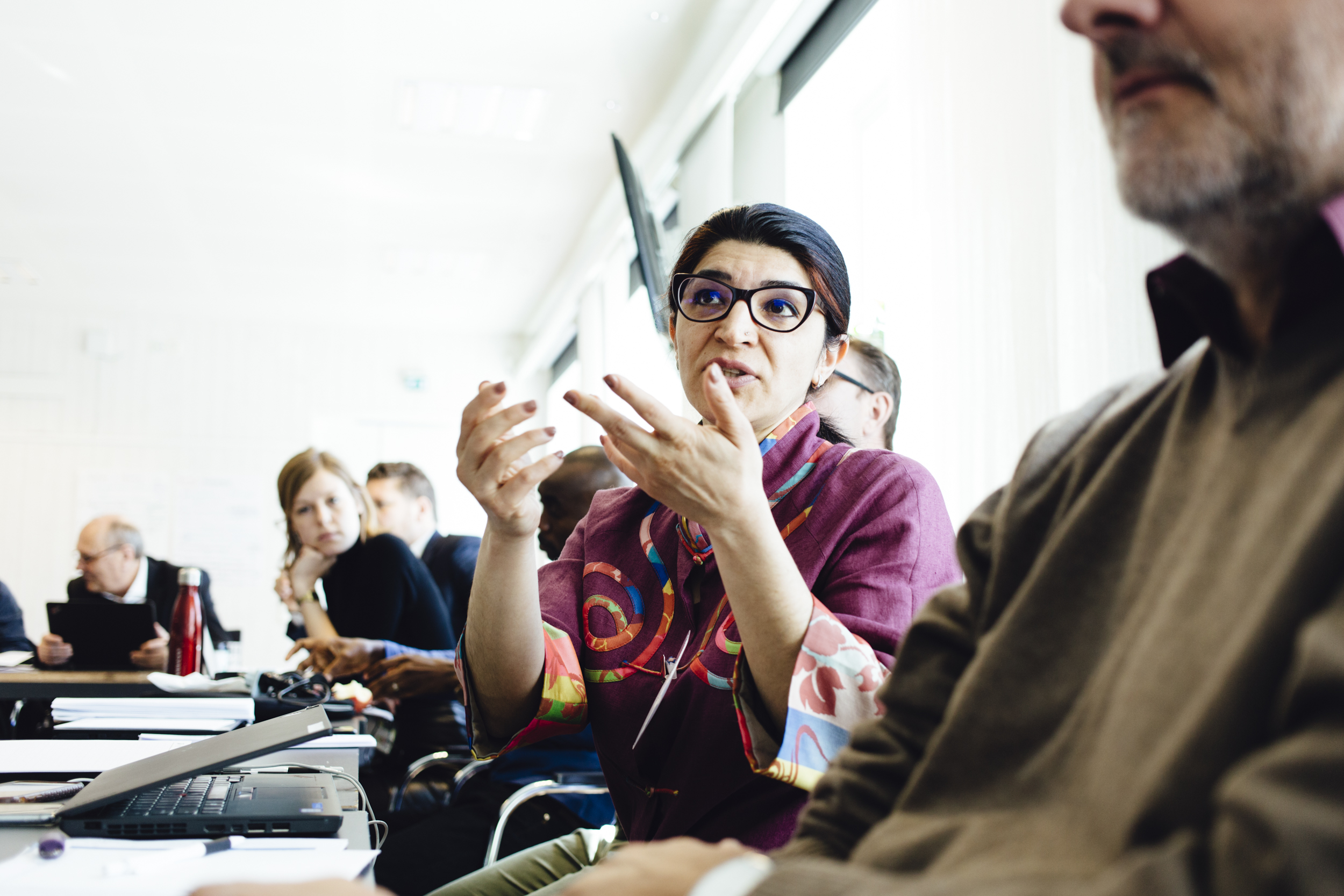
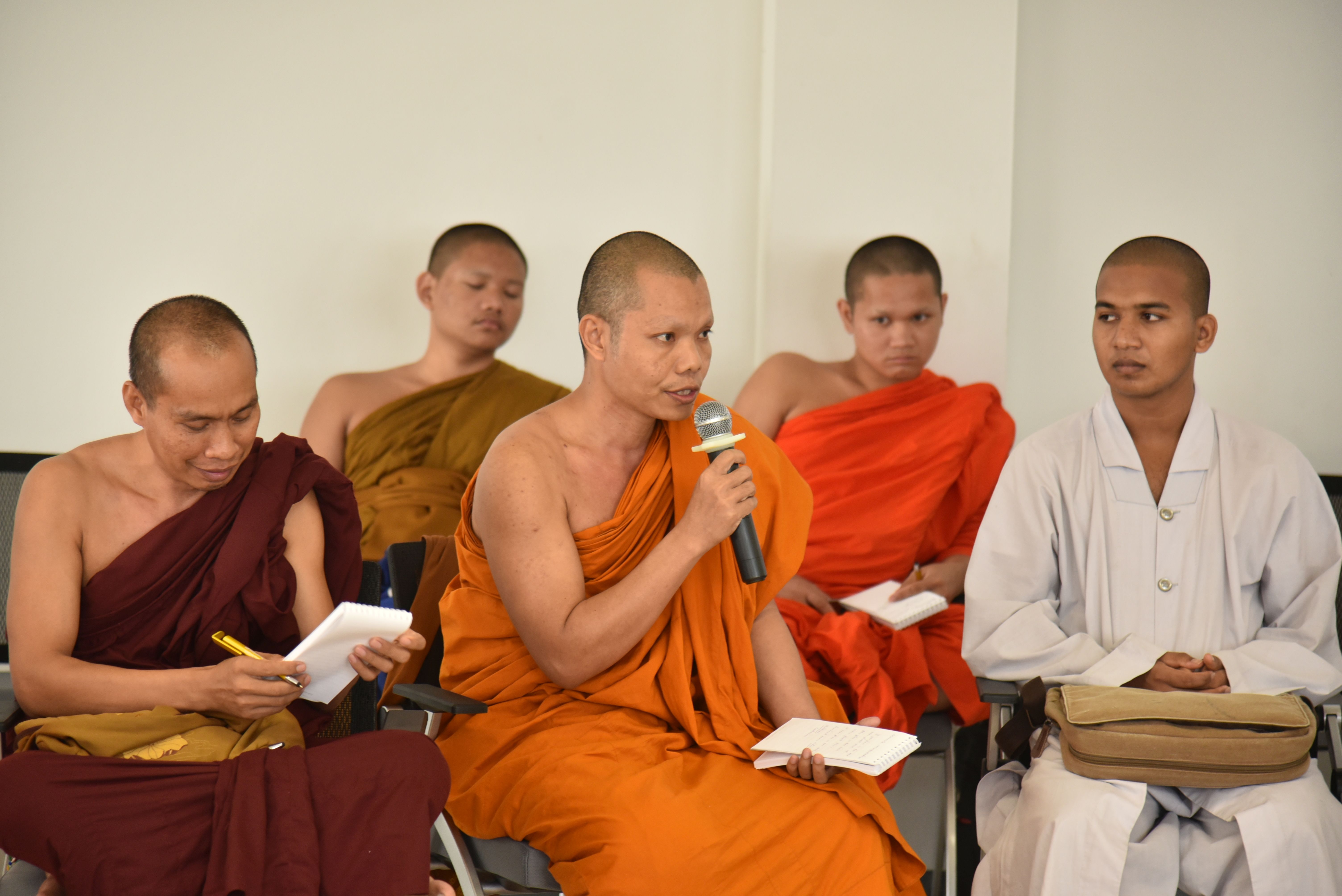
The Peacemakers Network efforts support religious and traditional actors – including women and youth – who are often the most familiar with the effects of violent conflicts on the population at large. They also have close ties to the community level and have vital knowledge about the local context and history as well as the needs on the ground. By engaging religious and traditional actors in mediation, dialogue, and peacebuilding process, the Network supports its crucial role in ensuring that peace efforts reach the wider population and are rooted in local ownership.
Our History & Justification
The Network for Religious and Traditional Peacemakers (Peacemakers Network) was initiated in 2013 as a direct result of UN Secretary-General Ban Ki-moon’s report titled “Strengthening the role of mediation in the peaceful settlement of disputes, conflict prevention and resolution” (UN GA Report A/66/811, 2012) and the supporting guidance titled “UN Guidance for Effective Mediation” (UN GA Resolution 65/283, 2012).
The report stated that “Religious leaders and faith-based organizations play an important mediating role in many conflict situations. These leaders have unique connections to local communities and frequently enjoy the trust of the conflicting parties”, and yet “are often not fully acknowledged, and their potential contribution remains underutilized.”
The Peacemakers Network was launched under the stewardship of a Steering Group comprised of multilateral and non-governmental organizations, including the United Nations Mediation Support Unit, Finn Church Aid, Religions for Peace, Organization of Islamic Cooperation, United Nations Women, United Nations Alliance for Civilizations, United Nations Population Fund, United Nations Development Program and the United Nations Office for the Prevention of Genocide. KACIID joined the Steering Group in 2015 and the Ministry of Religious Affairs and Endowment of the Sultanate of Oman joined in 2020. The role of the Steering Group is to provide strategic vision to the Peacemakers Network in order effectively carry out its mandate to advance the role of religious and traditional peacemakers. The Peacemakers Network is currently hosted by Finn Church Aid.
Since its founding, the Peacemakers Network has grown into a global structure built of religious and traditional peacemakers, international and national NGOs, think tanks, policy centers, and academic institutes.
How We Are Structured
With a Steering Group (SG) that includes Core Group members, they are able to continue their service as well as other members elected on a rotating basis by the Members Assembly. The responsibilities of the SG include:
1.
Providing strategic guidance and overseeing the Secretariat’s work.
2.
Contributing to high-level advocact on behalf of the Network’s mission.
3.
Reviewing and approving/disproving applications for Network membership.
4.
Choosing the list of participants in the Advisory Group Meeting.
5.
Selecting a host organization for the Secretariat.
Members
Members of the Peacemakers Network have experience engaging with tradition or faith-based peace and development activities and have the ability to assist the Peacemakers Network through their own expertise and contacts. Members also endorse the Network’s mission and vision, actively commit to the values of inclusivity, respect for diversity, human rights, and human dignity. Members have voting rights and meet once a year at the Members Assembly.
Supporters
Supporters of the Network are comprised of organizations and individuals that have the capacity and the desire to advance the Network’s mission, but that are unable to commit to membership. While supporters do not have the right to vote, they are encouraged to contribute, based on their interests and capabilities, to specific activities, and working groups.
The Secretariat
The Secretariat prepares meetings, ensures communication, coordinates joint activities, and facilitates the development of the support structures providing assistance to religious and traditional peacemakers. A majority of the work conducted by the Secretariat is done upon request and in close collaboration with partners.
Years in Review
2024
Year in Review
As we reflect on 2024, we are inspired by the global call for change, driven by a collective desire for a more just, peaceful, and inclusive world. This past year has highlighted the strength of communities coming together to address inequality, resolve conflicts, and support those displaced, reinforcing our shared commitment to foster inclusive, sustainable peace. From increasing our membership, to convening interfaith dialogues in South Sudan to hosting local town halls on the role of religious actors on mental health and psychosocial support in conflict transformation in Asia and Latin America, our network continues to prioritize collaborative, localized and culturally-relevant solutions.
2023
Year in Review
2023 has witnessed an alarming number of new, renewed or escalated conflicts. In this unparalleled time of a rapidly changing world order, the influential role of religious and traditional actors in all their diversity becomes even more pivotal to support transformative peacebuilding and peace mediation. It is not only a moral imperative that we amplify their roles but also a practical necessity to bolster their capacity to effectively actualize the 2030 Agenda and its 17 Sustainable Development Goals.
2022
Year at a Glance
Throughout 2022, the work and collaboration of our members, supporters, and grassroots actors showed tremendous resilience, responsibility, and dedication to support one another and our communities. Now, more than ever, we must unite as one community to collectively strive for inclusion and mutual understanding. We look forward to continuing to champion the role and capacity of local peacemakers, and working alongside our members, to promote sustainable peace and the actualization of the 2030 agenda.
2021
Year at a Glance
In 2021, the work and collaboration of our Members, Supporters, and grassroots actors showed tremendous resilience, responsibility, and dedication to support one another and our communities. We look forward to continuing to champion the role and capacity of local peacemakers, and working alongside our members, to promote sustainable peace and the actualization of the 2030 agenda.

